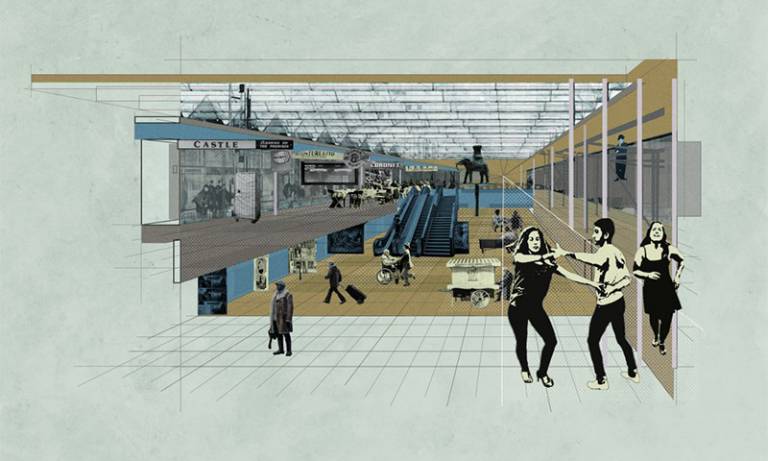Endangered Memories: the shifting architectures of the Latin-American diaspora in London
02 June 2017, 2:00 pm–5:00 pm

Event Information
Open to
- All
Organiser
-
Development Planning Unit
Location
-
The Bartlett Development Planning Unit - University College London Room 101, 34 Tavistock sq., WC1H 9EZ
The city is a collection of memories. London is a living repository of a unique spatial assemblage of individual and collective narratives from migrants from all corners of the world. A rich and diverse capital, it is home to, their stories, their memories connecting distant countries to this one, re-inventing and re-appropriating spaces to create new architectures and spatial practices.
Within the context of contemporary urban development and architectural practices, migrant ethnic communities are particularly vulnerable to eviction and displacement; their memories are under threat of extinction. The significance of the material culture embedded in these spaces is absent in contemporary architectural discourse. This event aims to explore the intersection between the urban memories of migrant enclaves and architectural and regeneration practices. Focusing on the experiences of the ever-growing Latin American community in London, we seek to inspire discussion on the socio-political and cultural implications of current development in the city for the collective urban memories of migrant enclaves, situated specifically in three case studies: Seven Sisters market in Tottenham and Elephant & Castle shopping centre. Together, these case studies exemplify the unique migrant appropriation of the urban, a platform with which to express a collective cultural and social identity. The activities will comprise, firstly, of a discussion about the stories of Latin American migrants in these contexts with accompanying discussions and analysis by academics in the field. In addition, walks on site involving local members of the Latin American community are proposed, offering participants the opportunity to learn from unique perspectives and histories of these three cases in collaboration with the Charities of Latin Elephant and Latin Corner. Significantly, these activities will contribute to question the manner in which architecture is shaping the experience of migrants in London, paradoxically enabling these social-cultural practices while, at the same time, threatening to extinguish them.
 Close
Close

